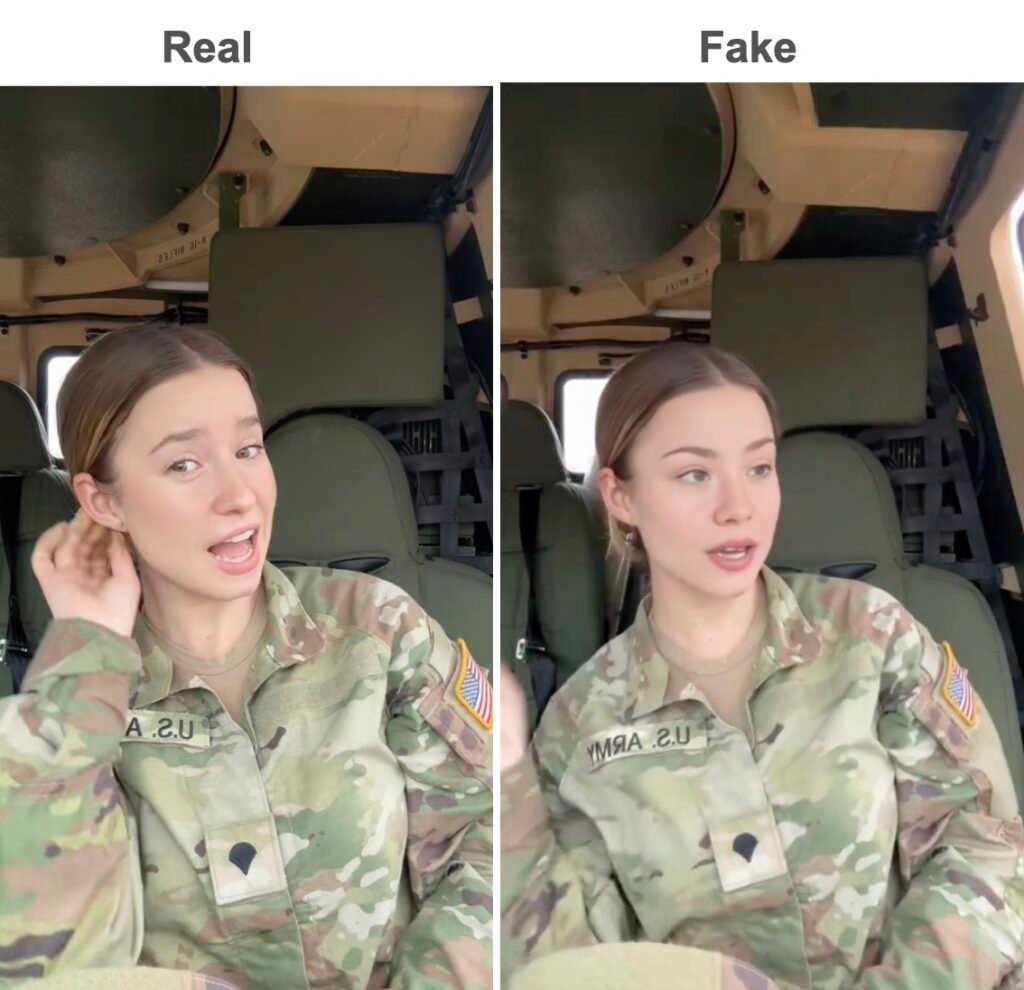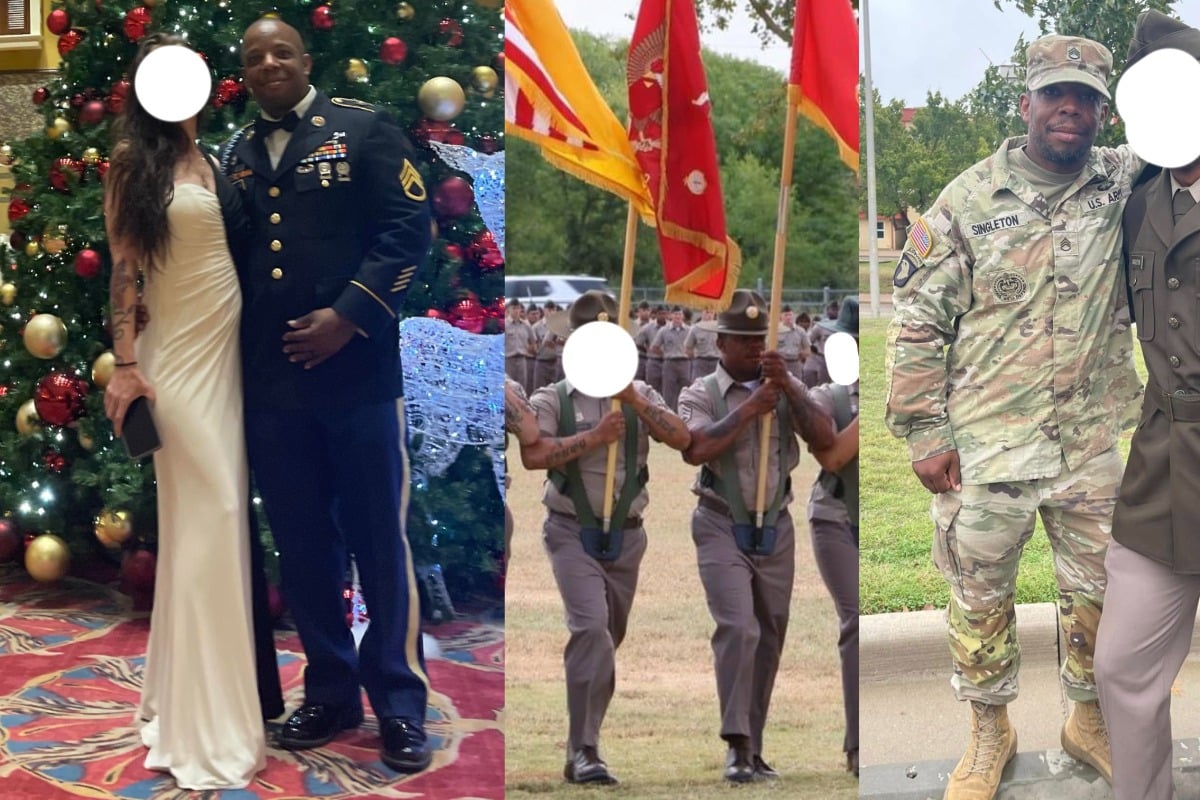For years, scammers have impersonated U.S. service members online, using stolen photos to run romance cons and trick victims out of money. But a new and more disturbing trend is emerging—one made possible by advances in artificial intelligence.
Some soldiers with large social media followings are discovering that scammers are now digitally altering their images and videos to create misleading or suggestive content in an effort to drive traffic to paid websites.
Army Specialist Speaks Out
Army Specialist Cheyanne Rademacher, a 68C Practical Nursing Specialist known for her candid online presence, says she recently became the target of such a scheme.
An online account has been posting altered videos taken directly from her social media—videos that still show her tattoos, her uniform name tape, and her mannerisms, but with the face swapped to match someone else. The content is then used to promote a subscription-based page that she has no involvement with.

Rademacher says she has reported the impersonation, but so far no action has been taken to stop it. While she does have her own page where she sells “hamburgers,” she stresses that it does not involve explicit images or the platform being promoted in the fake account.
👉Due to content restrictions and advertising guidelines, the full uncensored story—complete with images available exclusively at TheSaltySoldierUncensored.com, where we publish without filters or ad interference.
A Senior NCO Also Caught in the Crosshairs
Another case involves Staff Sgt. Chelsea Samatra, a decorated NCO with the 25th Infantry Division in Hawaii who has built a strong following on TikTok and Instagram by sharing lifestyle content, motorcycle rides around O‘ahu, and glimpses of her time in uniform.
Earlier this year, an anonymous internet account began circulating images claiming to show Samatra in compromising situations. However, a review by The Salty Soldier found inconsistencies—such as missing tattoos that are clearly visible in her verified social media posts—casting serious doubt on whether the images were genuine.
Samatra told The Salty Soldier that the photos are not her and warned that she would take legal action against any false claims using her name.
The Bigger Issue for Service Members
AI impersonation and deepfake manipulation are becoming increasingly common, and service members—who often post in uniform and have a built-in public profile—are uniquely vulnerable.
Even if the content is fake, it can damage reputations, impact careers, and potentially trigger military investigations. Once these altered images or videos are online, they can spread rapidly and are almost impossible to remove.
For soldiers, sailors, airmen, and Marines active on social media, these cases serve as a warning: scammers are getting more sophisticated, and the line between your real life and your online presence is thinner than ever.
© 2025 The Salty Soldier. All rights reserved.
Reproduction without written consent is strictly prohibited.




